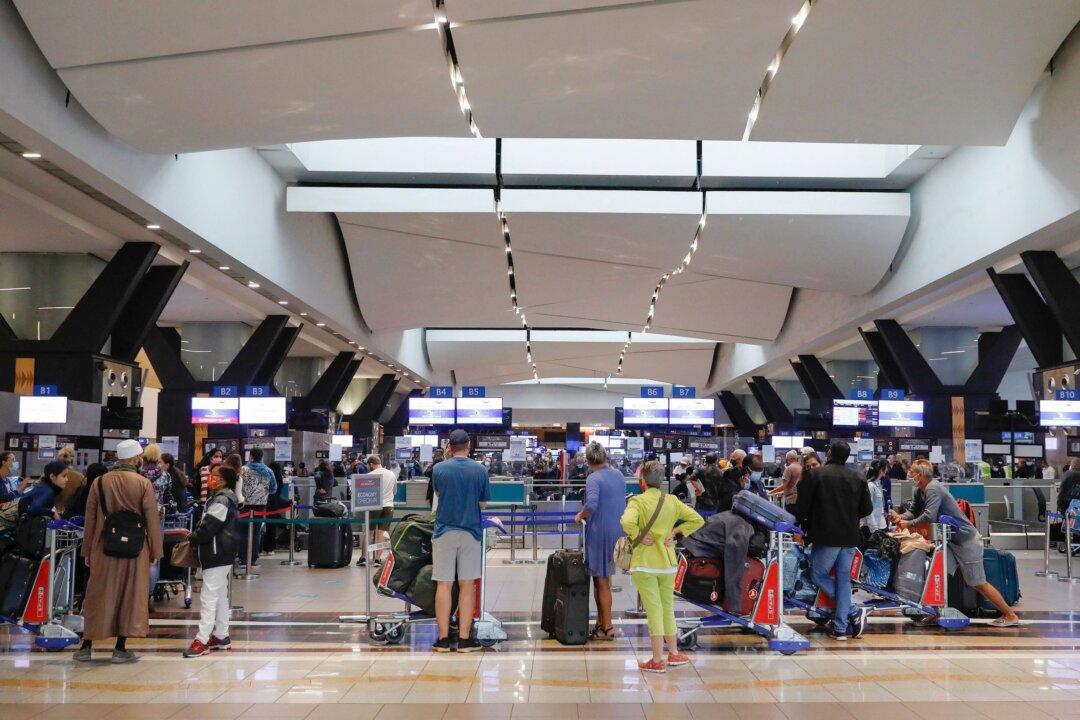Several U.S. agencies issued a “do not travel” advisory to eight southern African nationals due to the Omicron COVID-19 variant that was named last week, while on Monday morning, a previously announced federal travel ban on those countries went into effect.
The U.S. Centers for Disease Control and Prevention (CDC) recently raised its travel recommendation to “Level Four: Very High” for South Africa, Botswana, Zimbabwe, Namibia, Mozambique, Malawi, Lesotho, and Eswatini, formerly known as Swaziland. The Department of State also issued “Do Not Travel” advisories for the same countries.





